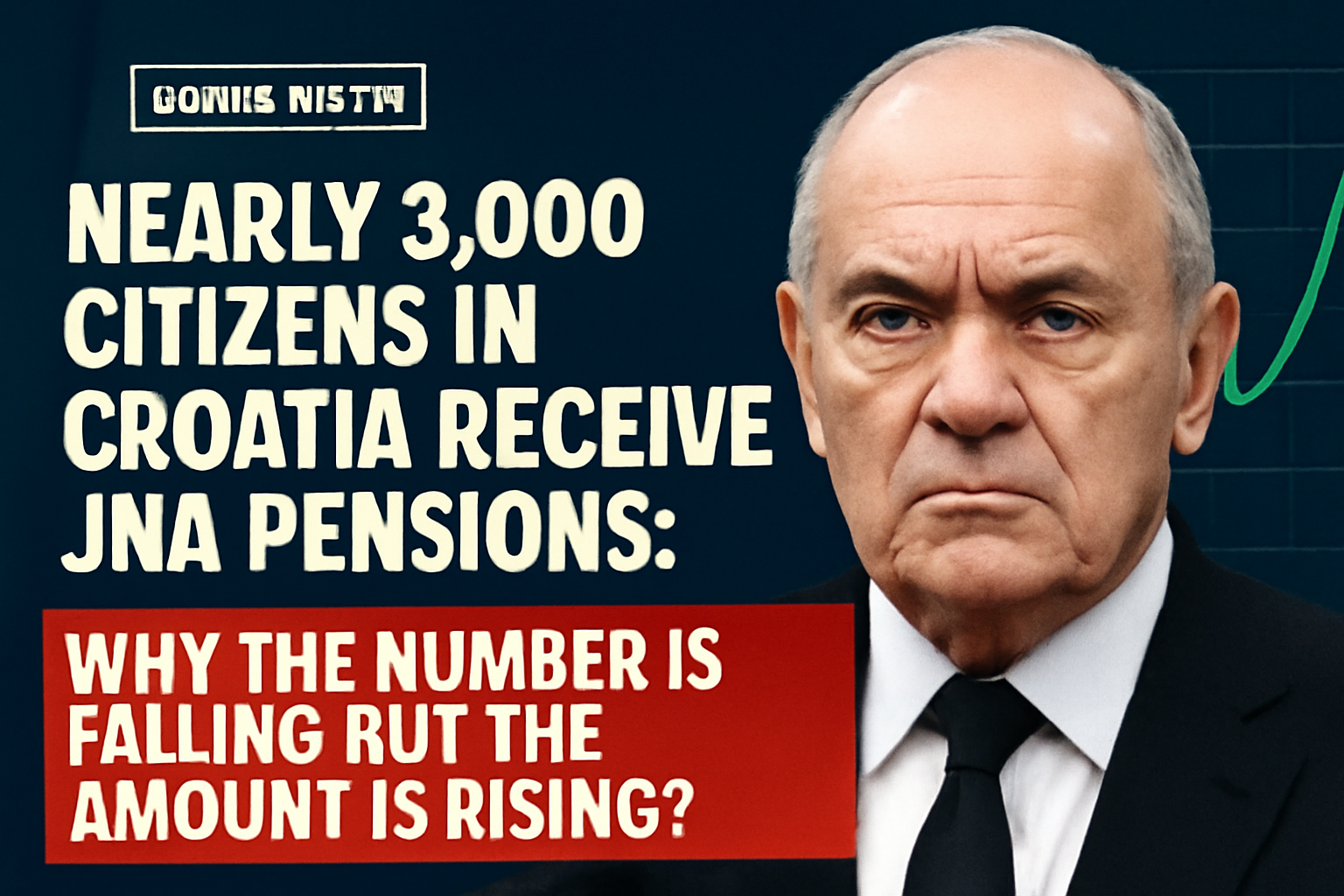JNA Pensions in Croatia: The Mystery of Falling Numbers and Rising Amounts!
Did you know that nearly 3,000 people in Croatia still receive pensions as former members of the Yugoslav People’s Army (JNA)? Yes, you read that right! Although the number of recipients of this pension decreases every year, the average pension amount not only does not fall but actually rises — and quite significantly.
Who receives these pensions?
Out of the total number of recipients, about 1,800 are women, while men number around 1,100. Most recipients are actually family pension beneficiaries, meaning wives of deceased former JNA members have taken over the pension rights. About 1,200 people receive old-age pensions, while 400 receive disability pensions.
How much are the pensions?
The average pension for men is around 400 euros, while for women it is significantly lower, about 280 euros. But here’s the shocking part: last year, the average pension was about 340 euros, meaning it increased by almost 60 euros in just one year! Ten years ago, the average pension was only 200 euros. So, while the number of recipients falls, the pension amount rises as if by magic.
Why is the number of recipients decreasing?
The number of JNA pension recipients is falling because former members of the old army are gradually passing away. In 2010, there were as many as 4,000 recipients, meaning the number has halved in just ten years. But why are pensions rising? The answer lies in special laws regulating these pensions, which fall into the category of privileged pensions. So, while the number decreases, those who remain receive higher amounts.
Is this fair?
While average pensions in Croatia hover around 300 euros, JNA pensions are among the most generous in that category. And to make things even more interesting, seafarers, who are also in the privileged pension group, receive the lowest average pensions. So, while some get more and more, others struggle with minimal amounts.
What does this mean for society?
This situation raises many questions about fairness and equality in the pension system. How is it possible that the number of recipients falls, but the average pension amount rises? Is this due to political decisions or simply legal provisions favoring certain groups? And while the number of recipients decreases, the state still allocates significant funds for these pensions, which can burden the pension fund.
Conclusion
JNA pensions in Croatia are a real mystery: the number of recipients falls, but amounts rise. Most recipients are women receiving family pensions, while men receive somewhat higher amounts. This pension category is privileged, which explains the rise in average amounts. But is this fair to other pensioners? The debate is open!
If you thought pensions were a boring topic, think again! This story has all the elements of drama, mystery, and justice. What do you think? Is it time for reform or should we let things run their course? Drop a comment, maybe your idea will change the game!










